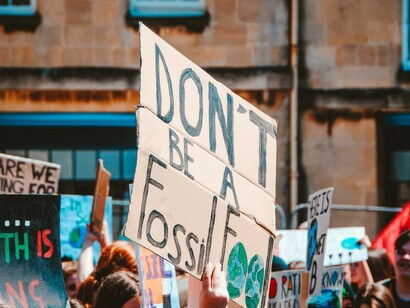In another article, I addressed an urgent issue in contemporary liberal democracies: how to justify the use of political power to address the causes and consequences of the current polycrisis.1 For those unfamiliar with the term, the polycrisis refers to the fact that the crises we are experiencing during this period (e.g., the climate crisis, economic crisis, the Covid-19 pandemic, wars, the migration crisis, etc.) are causally intertwined and degrade humanity’s prospects.2
Against this backdrop, I assessed two ways in which liberal democracies can justify exercising political power to address the polycrisis: using public reasons and reasons of state. The focus was mainly on the latter, so this article will delve into the former.
Supporters of public reason argue that the laws and policies that govern our society should be justified in terms that are accessible to those who are affected by them. According to John Rawls, the patron saint of public reason theorists, the reasons an individual with a particular cultural, moral, or religious background can present in public are limited by what people with different comprehensive doctrines might consider reasonable.3 To illustrate this point, imagine that my religion requires some of its members to cover their bodies. From a public reason perspective, members of this religion are free to cover their bodies, but they cannot enforce this requirement by law because the reason for doing so is unintelligible to non-members.
Given this, it is natural to wonder what we can appeal to when making public justifications. Fortunately, Rawls himself offers us a common guideline: "in making these justifications we are to appeal only to presently accepted general beliefs and forms of reasoning found in common sense, and the methods and conclusions of science when these are not controversial."4
So far, so good. The idea of public reason, as formulated, is completely aligned with the common understanding of the legitimate use of power in liberal democracies. However, this idea is not without its problems. I want to highlight two of them, which I will call the "stretching problem" and the "bypassing problem."
The stretching problem refers to the idea that, by making the standards of public reason more flexible to better reflect reality, we will end up with justifications that don’t look like public reasons. For example, consider the guidelines I mentioned earlier for making public justifications. What if reasonable, sincere, and well-informed citizens reject scientific conclusions, making them controversial? This problem has been formulated, and the solution is an adjustment to Rawls's guideline: scientific conclusions qualify as public reasons when they are uncontroversial within the scientific community.5
Thus, the problem is solved by distinguishing between the general public and the scientific community, and by recognizing the authority of the latter when they reach a consensus on certain scientific conclusions. It is not by chance that this perspective has also been referred to as dogmatism about science as public reason.6
However, problems continue to arise. One might wonder if the consensus requirement within the scientific community is too high. Consider the Covid-19 pandemic. Many of the measures implemented in this context lacked scientific consensus regarding their effectiveness. Instead, they were implemented because there was a body of research and reasonable hypotheses supporting the measures. For example, the measure to disinfect public spaces during the pandemic was justified not because there was a consensus that contaminated surfaces were important in spreading the virus, but because research showed that the virus could be detected on inanimate objects for up to a week. This finding supported the hypothesis that contaminated surfaces could significantly contribute to spreading the virus, which would be enough to justify the measure.7
Taking everything into account, we are in a good position to ask whether we are still talking about public reason. We started with justifications accessible to everyone but then distinguished between the general public and the scientific community. We give authority to the latter when there is a consensus within it about scientific conclusions. We argue that such a consensus is not always possible, and the list goes on. Moreover, I didn't mention anything that could be considered a particular exception. We often face situations like this.
Now, I will address the problem of bypassing. A supporter of the idea of public reason may reject a reason not because it is false, but because it is not public. In other words, some reasons are not even considered for refutation but rather dismissed as too burdened by a specific cosmovision.8 This is problematic because current crises, such as the climate crisis, will not be successfully addressed if we lack the motive to conserve our environment. As Roger Scruton has argued, the phrase "think globally, act locally" becomes a reality when motivated by oikophilia, or love of home.9 And this love of home certainly has no place among liberals who support public reason since it is informed by a comprehensive doctrine.
To sum up, this article addresses two problems with the idea of public reason. Although the idea of public reason aligns well with the notion in liberal democracies that the exercise of power should be justified to those affected by it, it has issues that must be reconsidered if we want the best tools to address the current polycrisis. Finally, I want to emphasize that this article is not against the justification of power. After all, politics is largely about justifying power. Even dictators, who are not accountable to anyone, constantly try to justify their decisions (we could argue that they fail to do so, but that is another topic). Therefore, this article merely suggests that our current methods of justification might not be the most appropriate.
References
Bellolio, C. (2018). Science as public reason: a restatement. Res Publica, 24(4), 415–432.
Contreras, F. (2013). Liberalismo, catolicismo y ley natural. Ediciones Encuentro.
Dahlquist, M., & Kugelberg, H. D. (2021). Public justification and expert disagreement over non-pharmaceutical interventions for the COVID-19 pandemic. Journal of Medical Ethics, 49(1), 9–13.
Kappel, K. (2021). Science as public reason and the controversiality objection. Res Publica, 27(4), 619–639.
Rawls, J. (2005). Political Liberalism. Columbia University Press.
Scruton, R. (2012). Green Philosophy: How to Think Seriously about the Planet. Atlantic.
1 Governing the present and the future in times of polycrisis. Meer.
2 Ibid.
3 Rawls, 2005.
4 Ibid., 264.
5 Bellolio, 2018.
6 Kappel, 2021.
7 Dahlquist & Kugelberg, 2021.
8 Contreras, 2013.
9 Scruton, 2012.















